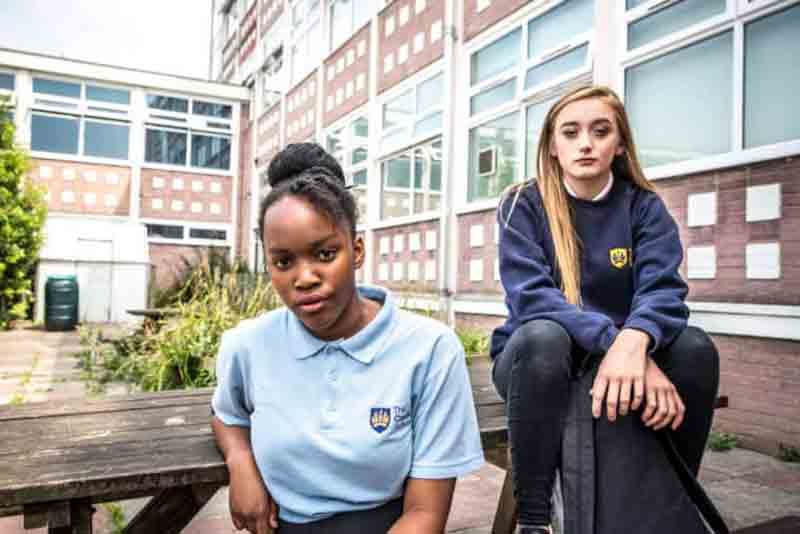Publisher
BBC2, Open University
Published
6 Nov 2018
While we wait with baited breath to know whether series two of Educating Greater Manchester will ever make it onto our screens (Channel 4 is currently waiting on the outcome of Salford council’s investigation into the school’s former headteacher), BBC2 is rolling right in to fill the gap.
The latest school reality TV series, a co-production with the Open University, is somewhat brazenly named School. It’s from the makers of Hospital – so the title makes sense, but it does also suggest an attempt to sell this as the final word on the subject.
To this end, the themes are highly topical – with mental health, zero-tolerance behaviour policies, exclusions and budgets all on the list. And the look and feel is all very BBC. It’s like Educating without the entertainment: absent are the matey headteachers juggling in staffrooms and high-heel collections falling out of cupboards. In fact, there’s overall a lot less laughter. So you can call it a lacking in pzazz, or you can call it a little more real. I found it strangely compelling.

Castle School Education Trust has three primary and four secondary schools in South Gloucestershire, but the series is filmed only at three secondaries: Marlwood, The Castle, and Mangotsfield. CSET has been functioning on reserves for a while, but those reserves are now empty, and there cannot be a deficit budget.
In 2016-17 the new CEO William Roberts, who retrained to be a teacher after starting his career at a multinational corporation, oversaw “over a million pounds of budget saving across his schools”. This year the cuts must continue.
The Castle, which has nearly 1600 students, needs to save £296,000 by the end of the school year. No discussion of what to do about “little extras” here – the choice is between redundancies or removing the TLR payments that accompany certain middle leadership roles.
“Castle’s issue is a generous leadership structure around TLRs and time for people with TLRs which we will need to deal with this year,” declares Roberts in a management meeting. To be fair, he’s trying to find a way to avoid increasing class sizes, but after this point it’s like watching a train wreck in slow motion. The idea of focusing the cuts at the level of heads of faculty seems so out of whack with Ofsted’s curriculum push that one wonders what planet Roberts is living on. I would have like to have witnessed what kind of challenge the trustees were providing to these decisions, but as always, we’re offered only a curated version of reality.
The most shocking scene is the staff meeting that’s billed as a “consultation” (no one is fooled) where it’s proposed that various MLT roles be “deleted”. There’s a huge elephant in the room, and interim headteacher Angela Browne misses a trick by not opening with an announcement of what financial benefits the senior leadership are proposing to give up. In typical British fashion, meanwhile, the teachers tiptoe around the issue, making pointed comments without ever coming out and asking the question directly.
In a piece to camera, Browne sums up the situation thus: “I don’t think that anyone out there is suggesting that as we make cuts we’re making things better. I think what people are trying to do is balance the books and not be horrifically in debt and unsustainable.”
Roberts is ruthlessly realistic, adding that “the purpose of schools is to provide an education … some people would like more to be spent on pastoral issues … we can’t spend money we haven’t got”.
All in all, this new series looks set to give the public a real insight into the tough decisions schools are grappling with.
As science teacher Andy Street gives the camera crew a tour of broken windows and blocked sinks, he muses pointedly: “if parents realised the extent of what’s happening, they would demand change. It’s just a question of how bad does it have to get before people realise how bad it is.”
At least one person will be glad of Philip Hammond’s “little extras” – and The Castle’s pupils might finally be able to take off their coats in science.













Your thoughts